A few months ago, Unilever CMO Keith Weed raised an alarm on the state of influencer marketing. In particular, he went after the widespread practice of influencers who buy fake followers and use bots to juice engagement.
“We need to take urgent action now to rebuild trust before it’s gone forever…
“This is a deep and systematic issue, an issue of trust that fundamentally threatens to undermine the relationship between consumers and brands…
“Brands have to play their role in resolving it. No longer can we stand to one side or remain at arm’s length just because issues in the supply chain do not affect us directly. As one of the largest advertisers in the world, we cannot have an environment where our consumers don’t trust what they see online.”
Weed’s strong words followed a New York Times exposé earlier this year that revealed many of the dirty little secrets of influencer marketing.
Weed focused on a few solutions for all marketers to consider:
“The key to improving the situation is three-fold. Cleaning up the influencer ecosystem by removing misleading engagement; making brands and influencers more aware of the use of dishonest practices; and improving transparency from social platforms to help brands measure impact.”
A related issue is the obsession of many marketers on follower counts above all else. It creates an incentive for influencers to game the system.
Given that the ANA reports that 75% of marketers use influencer marketing and half of those intend to increase spending next year, this will be a hot topic for marketers to figure out.
Here are a few related cartoons I’ve drawn over the years.
“Friends, Fans, and Followers” September 2010
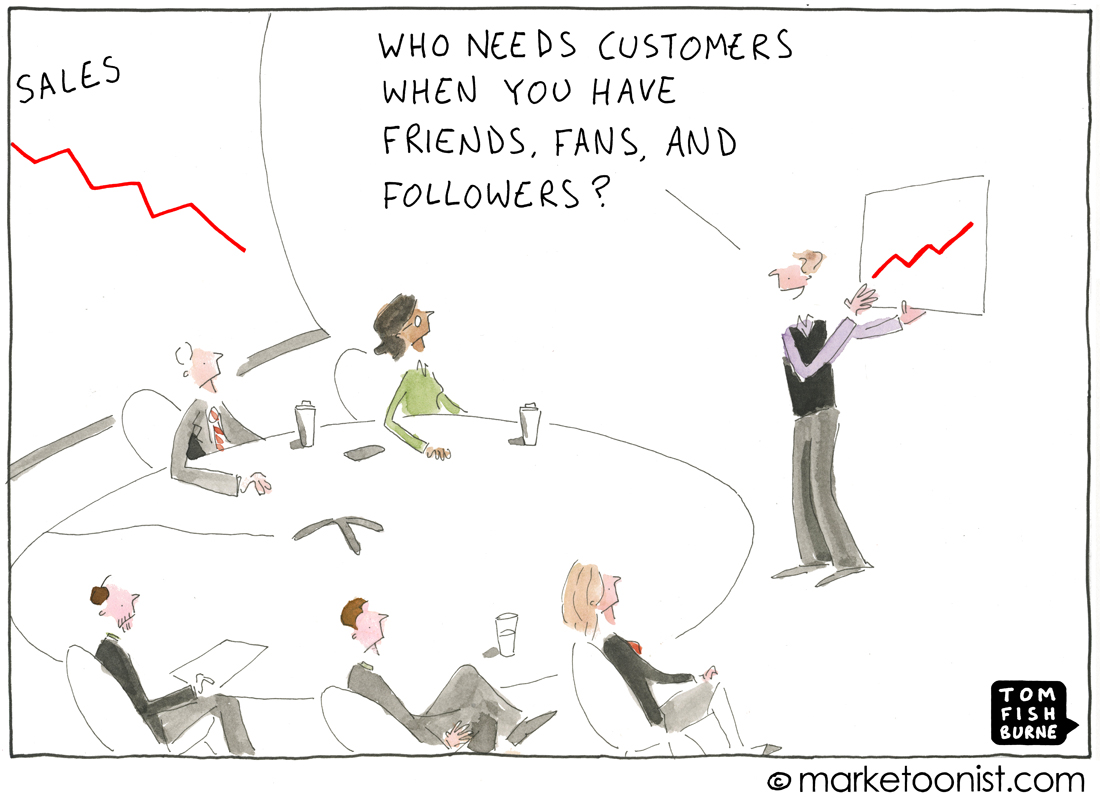
“7 Deadly Sins of Social Media Marketing” September 2014
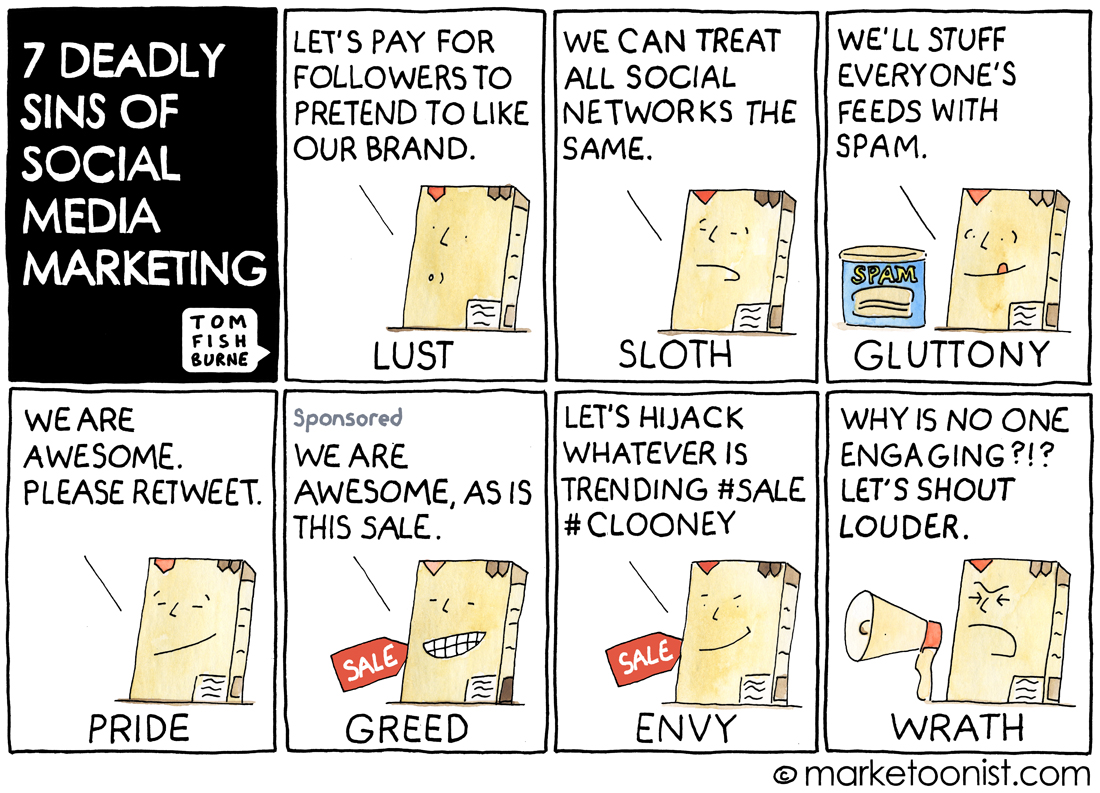
“Social Media Stars” December 2014
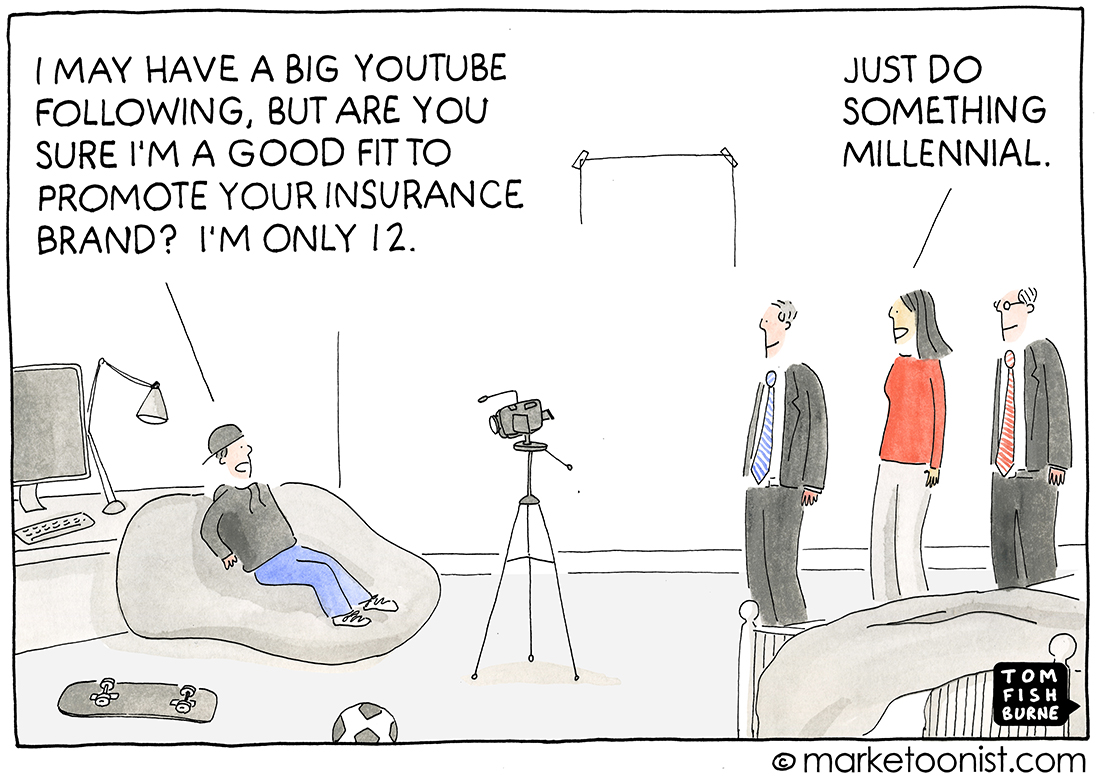
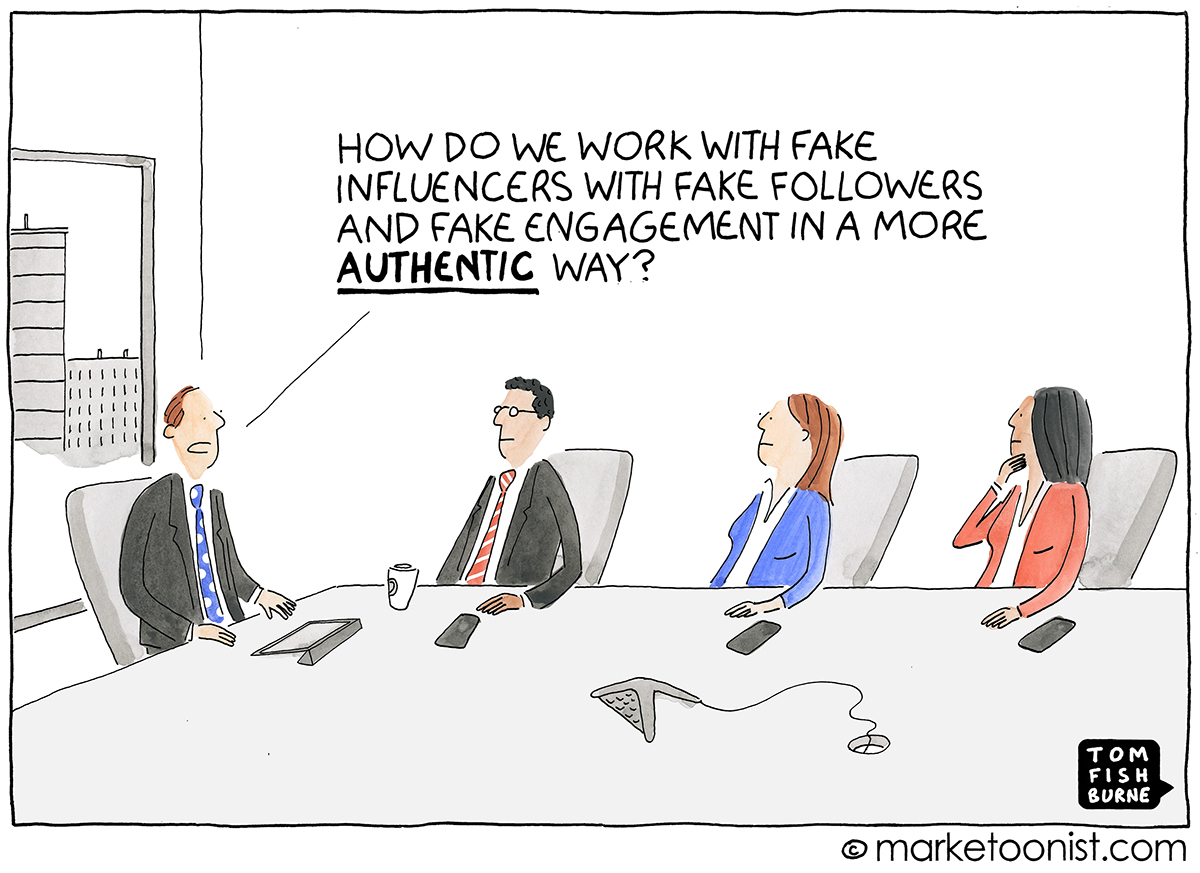


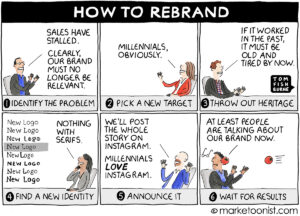
Paul S Woolf says
I love this! Hit the nail on the head in terms of how a lack of authenticity is creeping into our lives